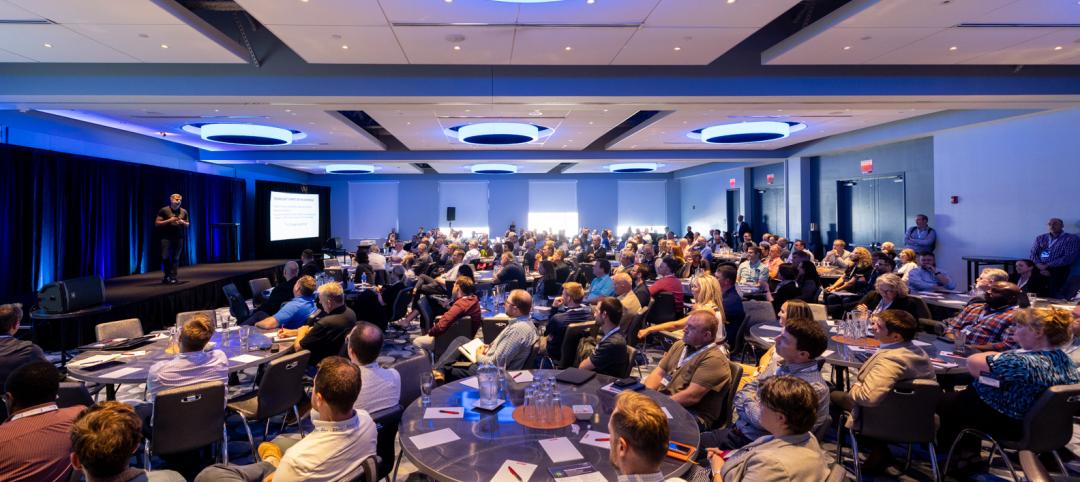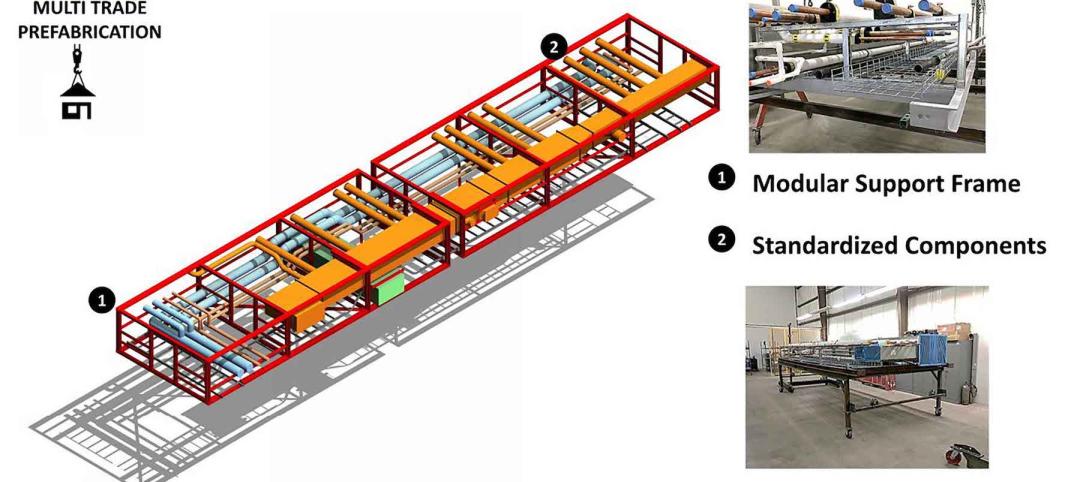In an effort to provide its clients with reliable information about how their buildings are likely to impact their occupants, the architectural firm NBBJ has created a Design Performance Group that is being led by Peter Alspach, a building physicist; Margaret Montgomery, FAIA, LEED AP BD+C, an environmental futurist; and Nate Holland, a computational expert.
Alspach, whose title is Director of Design Performance, joins NBBJ from ARUP, where he was Principal and Global Leader of Environmental and Building Physics. Montgomery is NBBJ’s Sustainable Design Leader. And Holland is the Seattle-based firm’s Digital Innovation Director.
One of NBBJ’s goals for its Design Performance Group is to transform buildings into “open source” platforms that through constant feedback loops provide data that can be analyzed and then harnessed for the purpose of connecting design with improvements in occupants’ cognitive function, productivity, and health.
The Group is expected to strengthen NBBJ’s focus on improvements such as enhancements to interior comfort and daylight access, and reductions in water and carbon emissions. NBBJ states that the Group will explore solutions using predictive analytics, machine learning, advanced building engineering, computational tools and applied science, and neuroscience research.
NBBJ recently used computational tools to optimize complex glazing geometry, saving a leading tech client in Seattle $1.5 million in manufacturing costs. The application of data analytics enables Renown Health in Nevada to serve more patients without expanding its real estate footprint. NBBJ also developed new design tools that ensure every employee at the headquarters of Chinese tech giant Alibaba is within a 60-second walk from outdoor green space.
Related Stories
Airports | Aug 22, 2024
Portland opens $2 billion mass timber expansion and renovation to its international airport
This month, the Portland International Airport (PDX) main terminal expansion opened to passengers. Designed by ZGF for the Port of Portland, the 1 million-sf project doubles the capacity of PDX and enables the airport to welcome 35 million passengers per year by 2045.
AEC Tech | Aug 19, 2024
Harnessing AI to revolutionize architectural design and creativity
Architects are wondering if AI will replace us. For Vessel, the gains offset the fear. We believe there is wisdom in the unattributed quote, “You won’t lose your job to AI. You will lose your job to someone using AI.”
Energy Efficiency | Aug 9, 2024
Artificial intelligence could help reduce energy consumption by as much as 40% by 2050
Artificial intelligence could help U.S. buildings to significantly reduce energy consumption and carbon emissions, according to a paper by researchers at the Lawrence Berkeley National Laboratory.
Products and Materials | Jul 31, 2024
Top building products for July 2024
BD+C Editors break down July's top 15 building products, from Façades by Design to Schweiss Doors's Strap Latch bifold door.
Smart Buildings | Jul 25, 2024
A Swiss startup devises an intelligent photovoltaic façade that tracks and moves with the sun
Zurich Soft Robotics says Solskin can reduce building energy consumption by up to 80% while producing up to 40% more electricity than comparable façade systems.
Great Solutions | Jul 23, 2024
41 Great Solutions for architects, engineers, and contractors
AI ChatBots, ambient computing, floating MRIs, low-carbon cement, sunshine on demand, next-generation top-down construction. These and 35 other innovations make up our 2024 Great Solutions Report, which highlights fresh ideas and innovations from leading architecture, engineering, and construction firms.
AEC Tech Innovation | Jul 4, 2024
Caution competes with inevitability at conference exploring artificial intelligence for design and construction
Hosted by PSMJ, AEC Innovate in Boston found an AEC industry anxiously at the threshold of change.
Contractors | Jun 4, 2024
Contractors expect to spend more time on prefabrication, according to FMI study
Get ready for a surge in prefabrication activity by contractors. FMI, the consulting and investment banking firm, recently polled contractors about how much time they were spending, in craft labor hours, on prefabrication for construction projects. More than 250 contractors participated in the survey, and the average response to that question was 18%. More revealing, however, was the participants’ anticipation that craft hours dedicated to prefab would essentially double, to 34%, within the next five years.
AEC Tech | Apr 30, 2024
Lack of organizational readiness is biggest hurdle to artificial intelligence adoption
Managers of companies in the industrial sector, including construction, have bought the hype of artificial intelligence (AI) as a transformative technology, but their organizations are not ready to realize its promise, according to research from IFS, a global cloud enterprise software company. An IFS survey of 1,700 senior decision-makers found that 84% of executives anticipate massive organizational benefits from AI.
BIM and Information Technology | Mar 11, 2024
BIM at LOD400: Why Level of Development 400 matters for design and virtual construction
As construction projects grow more complex, producing a building information model at Level of Development 400 (LOD400) can accelerate schedules, increase savings, and reduce risk, writes Stephen E. Blumenbaum, PE, SE, Walter P Moore's Director of Construction Engineering.

















